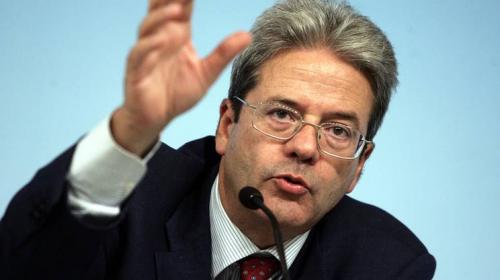Visco warns of Italy's 'vulnerability' despite GDP surge

ROME- Italy’s State Run Statistics Institute, ISTAT, has revised its initial first-quarter growth estimations from 0.2 percent to 0.4 percent and from 0.8 percent to 1.2 percent growth on the same quarter in 2016, the statistics agency revealed Thursday.
However, the despite the better-than-expected growth figures, Governor of the Bank of Italy Ignazio Visco warned that Italy’s high debt issues make it ‘vulnerable’ to market turbulence.
The 1.2 percent GDP first-quarter growth on the year is the highest level of growth since the fourth quarter figure in 2010 and has been caused by an increase in the service sector output.
The revised figures in GDP growth mean that Italy moves off the bottom of the European growth table.
Nevertheless, Governor of the Bank of Italy, Ignazio Visco, issued a grave warning regarding Italy’s high public debt and its banks’ increased level of non-performing loans (NPLs.)
The debts “reduce the margins for manoeuvre of the State and financial intermediaries; they both make the Italian economy vulnerable to market turbulence and may amplify the effects of cyclical fluctuations,” said Visco in his annual report.
Addressing an audience that included the European Central Bank President Mario Draghi, Visco warned that the labour market would suffer “the most painful legacy of the crisis.”
He stated that “an exceptional effort” was needed in order to overcome the current economic crisis, and that Italy should pursue “a stable and high growth path” in order to solve the job shortage problem.
“Imbalances must be corrected promptly, otherwise sooner or later you pay for them. As far as reforms are concerned, and that of public finances and for banks, more steps forward are needed, not U-turns,” added Visco.
Visco stated that it was “an illusion” to believe that Italy’s economic problems could be solved by the euro, and blamed “a lack of coordination with the EU” for the banking crises.
Finally, the Governor defended the work being done at the Bank of Italy, refuting the criticism previously aimed at the organisation, saying it had done its ‘utmost’ to avert financial crises.
Contrastingly, Italian Prime Minister, Paolo Gentiloni, was buoyed by the latest figures produced by ISTAT.
“Estimates for 2017 revised to be on the rise, Italy is growing more than expected and the hard work continues,” tweeted Gentiloni.



